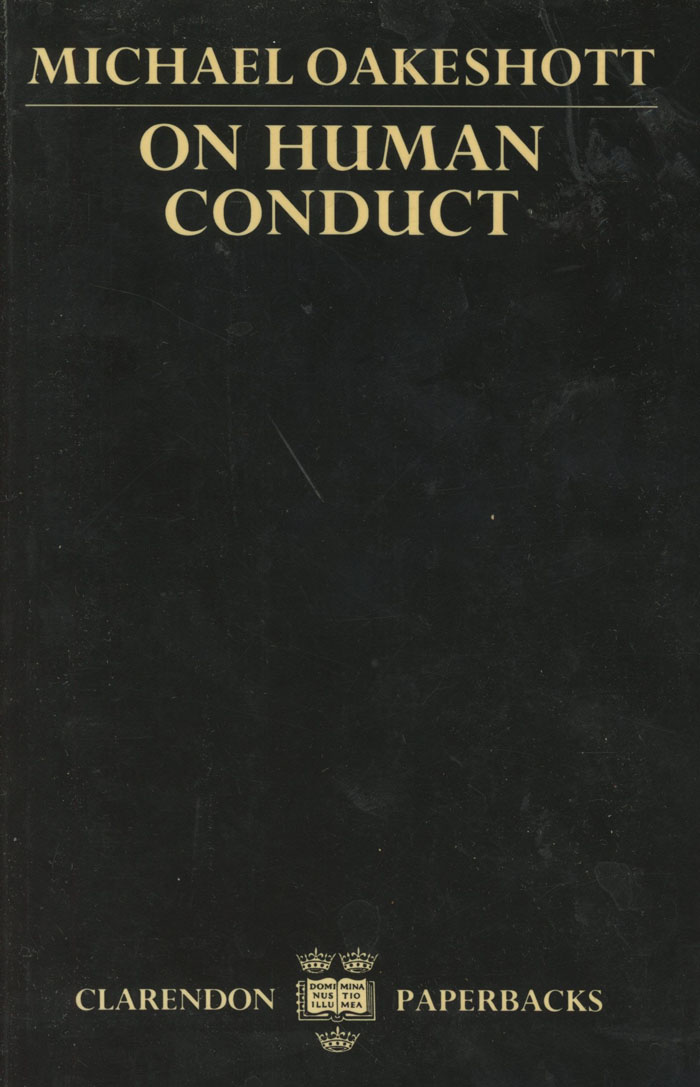Michael Oakeshott, On Human Conduct. Oxford: Oxford University Press, 1975.
From this website’s Introduction to Michael Oakeshott:
“Oakeshott’s career was bookended by two major philosophical works—the first, Experience and its Modes, and the second, the 1975 publication of On Human Conduct. He said in its preface that the book’s themes “have been with me nearly as long as I can remember; but I have left the task of putting my thoughts together almost too late.” Nevertheless, as Paul Franco has pointed out, the book represents his crowning achievement and indeed contains echoes of themes he had explored many times already in his shorter essays.
The book is composed of three long essays that aim at understanding the character of “civil association.” In the first essay, he sets out the moral framework for human association, distinguishing human “conduct” (action as a consequence of intelligence, emotion and will) from “behavior” (grounded in impulses and instinct). Once again, he recurs to a duality, this time between self-enactment and self-disclosure. Self-enactment is action considered from the point of view of a person’s own self-understanding; the motive or sentiment of action is primary here. In self-disclosure, by contrast, action is considered in light of what it may require or ask of others.
In the second essay, Oakeshott contrasts the two ideal types of “civil association” and “enterprise association.” In the first, humans associate in terms of a moral practice, where laws set out a structure for human interaction. The laws themselves do not advance or inhibit the particular causes of human beings or of groups but merely facilitate “civil conduct.” By contrast, “enterprise association,” which actually stands as the predominant modern conception of government, uses law to advance particular ends and causes. It offers less freedom to human beings because it necessarily imposes ends. Most modern political aims—universal healthcare, increasing the minimum wage, facilitating free trade, racial and sexual equality—are actually “enterprises” which governments have deemed desirable and use their power to pursue.
In the final section of On Human Conduct Oakeshott traces the political manifestations of these two kinds of association—universitas and societas—respectively, in Europe both in terms of history and through the thinkers who identified and promoted each kind of association.”
From Oxford University Press:
“On Human Conduct is composed of three connected essays. Each has its own concern: the first with theoretical understanding, and with human conduct in general; the second with an ideal mode of human relationship which the author has called civil association; and the third with that ambiguous, historic association commonly called a modern European state.
Running through the work is Professor Oakeshott’s belief in philosophical reflection as an adventure: the adventure of one who seeks to understand in other terms what he already understands, and where the understanding sought is a disclosure of the conditions of the understanding enjoyed and not a substitute for it. Its most appropriate expression is an essay, which, he writes, ‘does not dissemble the conditionality of the conclusions it throws up, and although it may enlighten, it does not instruct.'”
Online:
Amazon

